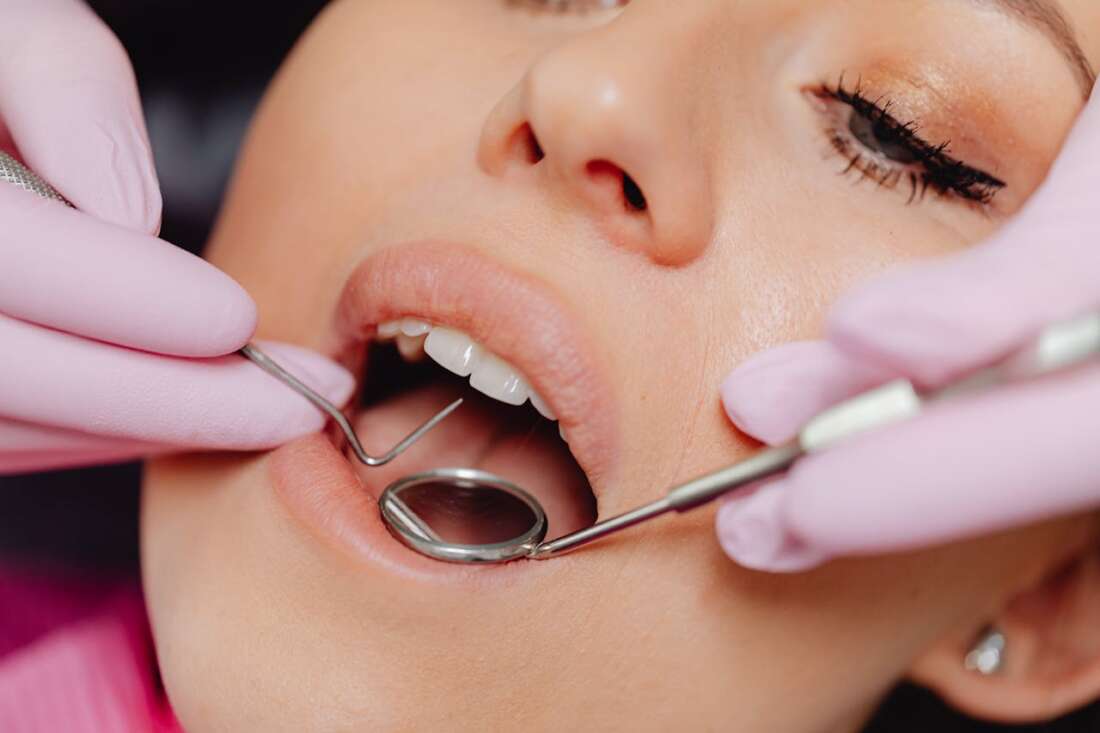
When it comes to maintaining good health, dental check-ups might not be the first thing that comes to mind—but they should be. Beyond ensuring a sparkling smile and fresh breath, regular visits to the dentist play a vital role in safeguarding your overall well-being. Oral health is intricately connected to systemic health, and neglecting it can lead to more than cavities or gum disease. From preventing chronic conditions like heart disease and diabetes to detecting early signs of serious illnesses, routine dental care offers a proactive approach to health management. As we delve into the surprising benefits of regular dental check-ups, it becomes clear that these appointments are an essential cornerstone of a comprehensive health strategy, benefiting both your body and mind.
How Regular Dental Visits Safeguard Both Oral and Overall Health
Regular dental visits are essential for maintaining oral health and significantly affect overall well-being. These check-ups go beyond keeping your teeth white or your breath fresh; they are crucial for identifying potential health issues early, which can help you avoid more invasive and expensive treatments later on. For instance, the seemingly simple habit of wearing night guards can prevent teeth grinding, which might otherwise lead to chronic headaches, jaw disorders, and disrupted sleep, which can significantly affect one’s quality of life.
Evidence shows a strong link between oral health and overall health. Good oral hygiene prevents cavities and bleeding gums and helps protect against severe conditions like heart disease and diabetes. Regular dental visits can act as essential health check-ups, identifying potential issues before they worsen and enabling timely healthcare interventions.
The Connection Between Oral and General Health
The science behind oral health as a reflection of your overall systemic health is compelling. When oral health deteriorates, it often signals underlying issues. For example, the same bacteria responsible for periodontal disease can enter the bloodstream and prompt inflammation throughout the body, aggravating conditions that may lead to cardiovascular disease. Furthermore, scientists have noted links between gum infections and other systemic diseases, suggesting that maintaining a healthy oral cavity is crucial for not only preventing tooth decay and gum diseases but also for denying entry points for bacteria that could lead to more serious health issues like endocarditis, a potentially life-threatening infection of the heart’s lining.
Preventing Disease Through Dental Health
Regular dental visits offer an advantage far beyond simple aesthetic maintenance. They are pivotal in diagnosing the early signs of disease. For instance, dentists might spot symptoms indicative of systemic conditions such as diabetes—through symptoms like bleeding gums, dry mouth, or loose teeth. Similarly, conditions like oral cancers can be screened during a routine dental exam, making these appointments crucial for early detection and intervention. By incorporating regular dental check-ups into your health routine, the opportunity to catch and address these health challenges early can significantly reduce the burden of disease progression, ultimately offering a proactive path to health management that integrates dental insight with overall wellness strategies.
Benefits Beyond the Mouth
Good oral health extends its benefits far beyond the confines of the mouth, impacting social interactions and psychological well-being. The embarrassment of bad breath or unsightly teeth can undermine self-esteem and social engagements, affecting everything from personal relationships to professional interactions. Meanwhile, chronic oral pain can contribute to stress and disrupt concentration, further affecting mental health. Addressing these issues through regular dental care can foster improved self-confidence, reduced stress, and a more positive outlook, allowing individuals to present their best selves socially and professionally.
Tips for a Healthy Mouth
- Brush your teeth using fluoride toothpaste at least twice daily to remove food particles, prevent plaque buildup, and keep your breath fresh.
- Floss daily to remove food particles and plaque from between your teeth, where your toothbrush can’t reach. This helps prevent gum disease.
- Rinse with mouthwash regularly to kill bacteria and ensure your mouth’s cleanliness while contributing to fresher breath.
- Maintain a balanced diet, avoiding excessive sweets and starches that can contribute to tooth decay and compromise gum health.
- Schedule routine dental check-ups for professional cleaning and to monitor for any developing conditions that could threaten your oral or general health.
FAQs on Dental Check-Ups
One common question is about the frequency of dental visits—ideally, these should occur twice a year, though individual needs may vary based on specific health conditions or risks. During a visit, you can expect a thorough cleaning to remove calcified deposits and a detailed oral cavity examination. These might include x-rays to explore beneath the surface of gums and teeth for a comprehensive assessment. Such regular check-ups are invaluable for preventative healthcare, proactively addressing potential problems before they escalate to serious health issues, hence safeguarding your overall health and well-being in a concerted and deliberate manner.
The Role of Technology in Modern Dentistry
With the advent of new technologies in dentistry, the way we approach oral health care has been transformed. Innovations such as digital X-rays, which reduce radiation exposure while improving diagnostic capability, and laser dental treatments, which can reduce the need for invasive procedures, have made dental visits more comfortable and efficient. These technological advances provide patients with a broader range of treatment options and improve outcomes through more precise and individualized treatments. This wave of innovation consistently transforms the dental experience, making routine visits something patients can look forward to rather than dread as procedures become less invasive and more precise.
Understanding the far-reaching impact of oral hygiene underscores the importance of adopting sound practices that boost physical health and improve mental wellness. Prioritizing oral health is essential for fostering overall well-being. Reflecting on these practices—like regular brushing, flossing, and professional check-ups—can lead to better health outcomes, resonating across myriad facets of life.
Conclusion
Incorporating regular dental check-ups as a fundamental aspect of overall healthcare encapsulates its significant health contributions beyond mere oral aesthetics. These visits are integral to maintaining oral hygiene and fortifying a holistic approach to health, enabling early detection and prevention of systemic diseases. By elevating dental health into the fabric of full-body wellness, you embark on a journey that promotes longevity and enhances the quality of life, affirming the profound role of dental care as a keystone in your health strategy.

